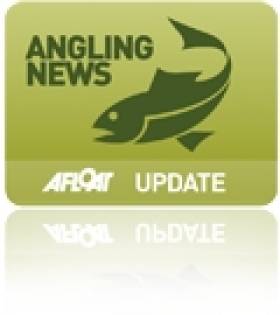Displaying items by tag: revival
Carlow CAC Receives Bursary for Disabled Angling Efforts
#ANGLING - Carlow Coarse Angling Club chair Gerry McStraw was presented last week with a special bursary by Carlow Sports Partnership for the club's efforts in helping disabled anglers to participate in the sport.
According to the Enniscorthy Guardian, McStraw was joined by Carlow CAC PR officer Ian Warburton and treasurer George Quinlan in receiving the money from Carlow Sports Partnership chair Tracey Byrne and Carlow County Council's Thomas Kinsella.
McStraw was recently highlighted on Afloat.ie for his spearheading of the revival of coarse fishing in Ireland.
The bursary will be used to buy equipment essential to running more coarse angling programmes in 2012.
Carlow CAC will also host three of the six weekends for the National Coarse Fishing Federation of Ireland's qualifiers next spring and summer.
Extolling the Benefits of Canal Living
Today's Irish Times looks into the lives of people who've made their homes on or near Dublin's canals.
One resident is Breffnie O'Kelly of Percy Place, whose back garden abuts the banks of the Grand Canal - which has experienced a revival in recent years, with dredging work now completed and a new cycle path on the way.
O'Kelly is also a member of the Friends of the Grand Canal Group, which meets regularly to keep their stretch of the canal clean.
Another voice singing the praises of the canal is author John Banville, who has set much of his crime fiction in the area around Lower Mount Street, where he himself lived for a time.
The Irish Times has more on the story HERE.

























































